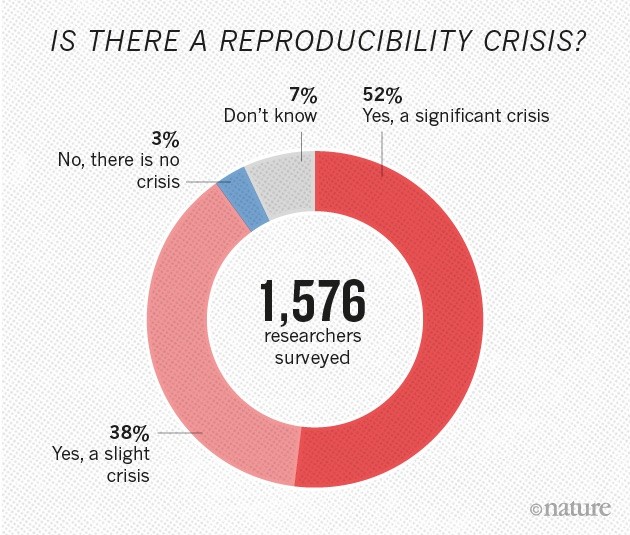- Atom
- Posts
- A Brief Background on Decentralized Science
A Brief Background on Decentralized Science
A history of how DeSci is striving to power modern scientific research using Web3 and the blockchain.
Simply put, decentralized science is the intersection of blockchain technology and science.
DeSci is focused on using Web3 to power fair and equitable funding, peer review, citations, data management, and general sharing scientific knowledge. Whether its creating new incentive structures for peer review or new funding mechanisms with DAOs, DeSci aims to amplify the core elements of scientific research.
The mission is for accessible scientific knowledge and a transparent research process, while using the inherent decentralization of the blockchain to make it resistant to censorship and cut out the middlemen that exist, especially in the grant and publishing industry.
Early use cases of DeSci go back to early 2020, when the Open Science NFT was sold for 13 ETH (almost $22,000 at the time). OpenSea link here.

Looking forward, however, DeSci strives to revolutionize all aspects of research, going far beyond simply putting papers on the blockchain.
Funding
Current scientific research funding is a slow, cumbersome and frustrating process. Many articles (here for example) have investigated the issues with grant funding and the incentives it produces.
DeSci seeks to flip the scientific funding mechanism on its head. Whether funding from DAOs or quadratic funding, new financial incentives are being introduced into the research paradigm.
My initial reaction was that most scientific funding (in the United States) is from the government, who has no incentive to support modern Web3 technologies. However, that is not true (see below). Since 2017, the governments share of research funding fell below 50% for the first time in the post-WWII era.
With more seamless and fair scientific funding, scientists can focus on producing better (and more reproducible) research.
Reproducibility
Arguably the most important aspect of scientific research is its repeatability and reproducibility.
In recent years, many papers have come out analyzing the "reproducibility crisis", in which a significant portion of experiments in published papers are failed when attempted to be reproduced (there are even some cases where the lab that published the paper cannot reproduce their own data).
DeSci seeks to solve this issue in two ways. First, in combining the blockchain and decentralized storage systems such as IPFS and Arweave, a data trail can be published along side a paper. Any graph or image can have linked to it the corresponding code and/or data, allowing everyone to see exactly where it came from and how it was generated.
Secondly, DeSci has the potential to bake in better incentives for scientists. Creating a cycle of scientists who work to publish more reproducible and recreatible science, and then also have those scientists verify and reproduce other scientists work will help significantly with the integrity and quality of science. Though these incentive systems were difficult to create before, Web3 opens new doors for promoting stronger scientific participation.
Publishing and Peer Review
Again utilizing decentralized storage systems or potentially even NFT's, DeSci will further push the open access movement forward, providing mechanisms where it is beneficial and standard for scientists to openly publish.
DeSci has the potential to cut out the intermediary publishing industry that currently makes massive profits while relying on the free labor of scientists (both for actually doing the research and for the work of peer review). Utilizing smart contracts, research can be efficiently peer reviewed, using whatever mechanism is the most favorable, not necessarily the current one (see example below). Articles can then be published automatically, showing the correct approvals in a transparent way, creating a more fair and unbiased system.
Though there are current implementations of open access and alternative peer review systems, its difficult to see an option that is easier to implement and more transparent than using the blockchain.
IP ownership and development
Solving the intellectual property issue of traditional science if a difficult one. How do you value scientific research at universities, ownership shares, and much more. Web3 is exceptional for managing digital assets, and using mechanisms such as IP-NFTs, scientists can be given legal rights to their intellectual property.
Molecule DAO is doing it better than anyone else.
The decentralized science movement is very nascent but has the potential to upend the current research flow. This being said, there are still many open questions such as data management, how to transform the prestige that citations and the top journals give, and finding a way to seamlessly integrate DeSci into current scientists workflows.
There's definitely a long way to go, but the DeSci movement is taking steps in the right direction. With the structure of scientific publications not changing since the invention of the internet, theres no better time than now to start the new movement. Almost no PhD student will tell you that the way grants, publications, or peer review is done makes a lot of sense, and DeSci is striving to change that.

